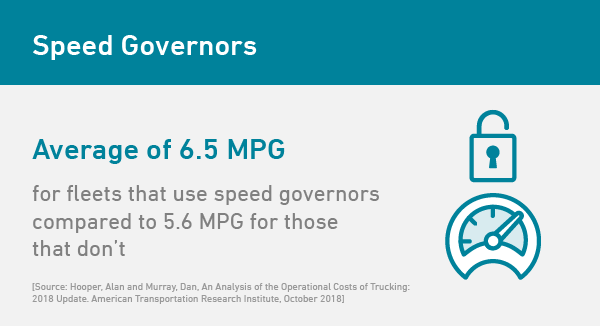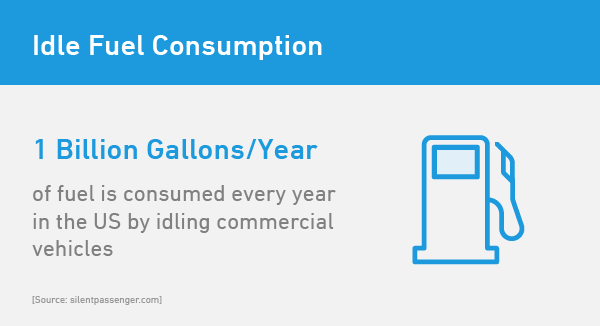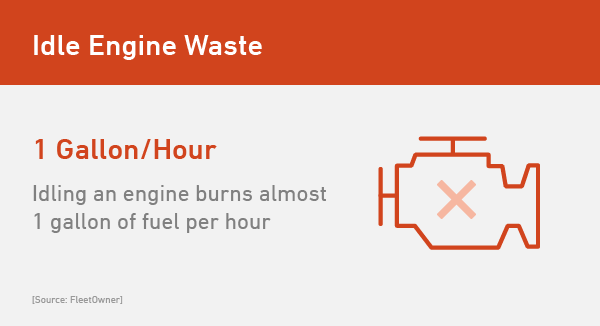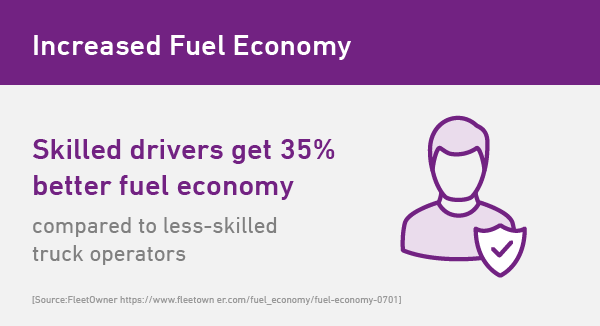Fleet Fuel Management System

What is a fuel management system?
In order to pinpoint the major factors in fleet fuel usage and ultimately reduce consumption, it is best to consider fleet fuel management software that works with telematics devices. Telematics and fuel management software work together to provide an up-to-date picture of fuel cost, helping you determine which improvements to make to drive operational efficiency in your fleet.
With advanced fleet and fuel management software, you have access to detailed reports that distill dozens of discrete data points to help you manage fuel trends and outliers in your fleet.
When driver performance is the culprit, you will know not only which drivers are responsible for excess fuel consumption, but also which fuel-wasting behaviors require coaching. In this way, innovative fuel management solutions systems can also supplement risk management solutions.
What is fuel economy?
What does fuel economy mean? Fuel economy is a measure of how long a vehicle can travel per unit of gas, most commonly measured in miles per gallon or MPG. A vehicle's MPG is dependent upon many factors, some within and others outside of control. The type of engine, vehicle size, age of the vehicle, and more are all things contributing to fuel efficiency. In addition, things like hard braking and other driver behaviors can also affect fuel usage. More on that next.
How can drivers increase fuel economy?
Although fleet managers have been able to improve the efficiency of individual vehicles with lighter aluminum wheels, low rolling resistance tires, and speed limiters[1], the single most important factor in controlling fuel expense is driver behavior. Here are a number of driving behaviors that affect driver safety and expend fuel needlessly:
Limit driver speeding
Most vehicles of any fuel type, including trucks, are most efficient when traveling at moderate speeds. Driving faster wastes fuel: for every 5 miles per hour over 35, fuel efficiency goes down by 5 to 10 percent.[2] Keeping speed under control is especially important with vehicles that already burn more fuel; a truck that is capable of 6 miles per gallon of fuel at 65 miles per hour will get as little as 5 miles per gallon at 75 miles per hour, increasing fuel cost by nearly 17 percent.[3]

Discourage hard acceleration and braking
Quick starts and stops are not just bad for the engine and drivetrain; they also waste fuel. Along with speeding, this kind of driving can lower your gas mileage by 33 percent at highway speeds.[4] Flooring the pedal to accelerate quickly uses far more fuel than a gradual start, and can be part of a pattern of other wasteful, dangerous or cavalier driving behaviors.
Constant unnecessary braking, often accompanied by tailgating and frequent lane changes, becomes a vicious circle as it necessitates even more bursts of acceleration to keep up with traffic. A fleet fuel management system can help you identify which vehicles are using fuel inefficiently, and could ultimately help you manage driver behavior and improve fleet safety.
Avoid idling
Engine idling is one of the most reliable ways to waste fuel. When a truck, for example, is idling, it is literally getting zero miles per gallon. According to the U. S. Department of Energy, an idling truck consumes about 0.8 gallons of fuel per hour[5]—adding up to 1 billion gallons of fuel wasted annually during idling nationwide.[6]
Idling too long can be illegal as well: across the country, a patchwork of idling regulations[7] specify how long a truck is allowed to idle—in some states, it’s as little as one minute—before penalties apply.

What does a fuel management system do?
When it comes to fuel management, increasing fuel efficiency is only one piece to the puzzle. There are many other areas of concern, such as fuel costs, leakage, fraud, that are equal priority. A comprehensive fleet fuel management system can help fleet managers manage all of these necessities while providing invaluable insights into consumption.
Today’s fleet tracking telematics systems provide a significant stream of information about the vehicle and the driver in real time over high-speed wireless or cellular networks. Location and speed data from an onboard GPS, combined with accelerometer data, provide information about miles traveled and how the vehicle is being operated.
Engine data from a direct connection to the engine control module (ECM) helps corroborate distance traveled to compute fuel usage. Telematics-based fuel management services remove the time-consuming and error-prone process of logging distance traveled and calculating mileage by hand. In addition, most fuel management software is connected to the cloud, which means that fuel data across the entire fleet can be aggregated in real time and analyzed.
By looking at fuel data for all vehicles at once, it is possible to identify which are using more fuel on average than others. In fact, some fleet fuel management systems can compare each vehicle with a database of information from other tracked vehicles of the same model and year to determine whether the fuel consumption falls in line with similar vehicles.
Identify problem vehicles
When fleet managers are able to identify which vehicles are less efficient, they can make decisions to repair or replace the costliest outliers. With a bit of attention to problem vehicles, the overall fuel efficiency of the fleet can improve.
Uncover inefficient driver behavior
Although vehicle maintenance is important, driver behavior is the most significant factor in fuel efficiency. Telematics data lets fleet managers track and record risky and wasteful behavior such as speeding, hard starts and stops, and excessive idling.
Correlating recorded driver behavior with fuel statistics can help fleet managers improve operational costs, performance, and safety. When you know which drivers engage in risky behavior, you can establish an effective coaching program to help them improve. By providing you with valuable and detailed information, a fuel management system can improve performance, safety, and operational cost.
According to Telematics Wire, telematics can reduce fuel costs by as much as 14 percent. As part of a fleet fuel management system, telematics devices can reduce idling fuel consumption by reminding drivers to turn off the engine after a certain amount of time.
By recording strong acceleration and deceleration events, telematics systems can identify drivers who engage in risky and wasteful behavior. A good fleet fuel management system that includes video telematics can provide additional corroborating data when an event occurs.
Fuel reporting with a fuel management system provides an objective, data-driven view of the causes of excess fuel consumption and has proven to improve fuel efficiency and reduce fleet fuel consumption. This evidence can be the foundation of a strong driver coaching program to improve safety and help drivers operate more economically.

Improve fuel efficiency by using fuel management system software
Armed with comprehensive data about your vehicles and drivers, you are poised to take action. Once you have serviced the vehicles that are running inefficiently, it is time to tackle driver behavior. Edmunds.com tested a number of fuel-saving techniques and determined that driver behavior can make a difference of up to 37 percent in fuel consumption.[8]
The perfect fleet fuel management system provides reports indicating specific actions taken by each driver, including behaviors that waste fuel. Armed with these reports, you will know who your speeders are, who spends too much time idling the engine, and even which ones drive aggressively.
The GPS and accelerometer can determine when a vehicle is starting and stopping hard, taking corners too quickly, or swerving from lane to lane.

With fleet fuel management reporting, you can create a scorecard that ranks your most and least efficient drivers in order to identify and correct the specific behaviors that are contributing to excess fuel consumption. For most drivers, the scorecard should emphasize rewarding improvement rather than punishing bad behavior.
Train drivers on the key aspects of efficient driving techniques: shutting off the engine instead of idling unnecessarily, starting and stopping gradually, planning ahead, and cruising at a sensible speed. With detailed data on driver behavior, a fleet manager can have their more experienced drivers teach the others defensive driving, helping them learn how to drive more smoothly without losing time.
If a driver is particularly egregious, data from your fuel management system is tremendously helpful in changing behavior. Start by sharing the information you have on speeding or other events—including video—to show that you are aware of what is going on. You can then explain the ramifications of the behavior you have observed.
For example, for a driver that habitually drives too fast, explain how speeding is not just a fuel economy issue but an important fleet safety concern, and that speeding is illegal. Communicating clearly and matter-of-factly and pointing out the company’s policy for repeat violations is often enough to immediately change a driver’s behavior.
Use a fuel management system and reporting for an efficient fleet
One of the biggest challenges in fleet management is controlling fuel costs. The rising costs of fuel can threaten even the strongest of fleets as one of the largest expenses of day to day operations. Finding ways to increase fuel efficiency will always be a top priority, making fuel control systems an attractive option for fleet managers.
There are many types of fuel control systems at different points in the consumption chain: from the electronic fuel management system for cars to a card-based fuel control system for onsite fleet fueling, each controls a different aspect of fuel consumption.
These fleet fuel management solutions can help reduce fuel spending and improve cost savings by showing where fuel dollars are going and flagging any drivers or vehicles that are using more than their fair share.
Why having a fuel management system matters
By providing you with detailed, up-to-date information on exactly how your vehicles and drivers are performing, a telematics-based fuel management system helps to substantially lower fuel costs and increase productivity. The most modern systems include video telematics data to help you identify driver behavior and events more precisely and understand in greater detail what is going on.
Many modern fleet management systems include reporting software that provides comprehensive information about the overall fuel efficiency of the fleet and quickly shows which drivers and vehicles are responsible for excessive fuel consumption.
When you have the right information from fleet fuel management systems, you can measure and manage the operation of your fleet. By identifying vehicles that need service and drivers who need coaching, you can make sure you are spending your fuel dollars wisely.
Interested in using video telematics to help improve fuel efficiency in your fleet? Schedule a personalized demo to learn how Lytx products and services can help.
[1] American Transportation Research Institute
[2] GAO.gov
[3] Statement of William P. Graves on behalf of the American Trucking Associations, Inc. (ATA)
[4] American Trucking Associations - Trucks Drive a Cleaner Tomorrow
[5] US Department of Energy - Long-Haul Truck Idling Burns Up Profits
[6] SilentPassenger.com - 5 Ways to Improve Fleet Fuel Management
[7] American Transportation Research Insitute - COMPENDIUM OF IDLING REGULATIONS
[8] Edmunds.com - We Test the Tips

